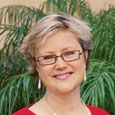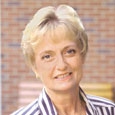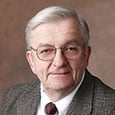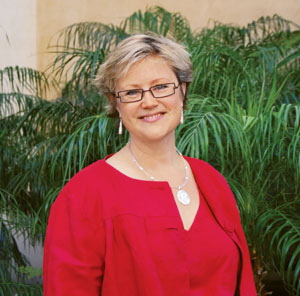 Sarah Jackson has been the piccolo soloist in the Los Angeles Philharmonic since 2003. When she won the position, it seemed as if she emerged out of nowhere, probably because she had grown up and been educated in Canada. She is a musical one-of-a-kind piccolo soloist; her approach to the instrument has been one of self-discovery, analysis, and experimentation, not the usual routine of studying with the orchestral piccolo greats. Jackson has a huge vibrant personality and loves to talk.
Sarah Jackson has been the piccolo soloist in the Los Angeles Philharmonic since 2003. When she won the position, it seemed as if she emerged out of nowhere, probably because she had grown up and been educated in Canada. She is a musical one-of-a-kind piccolo soloist; her approach to the instrument has been one of self-discovery, analysis, and experimentation, not the usual routine of studying with the orchestral piccolo greats. Jackson has a huge vibrant personality and loves to talk.
Born in Durham, North Carolina, the child of Canadian parents, Jackson and her family moved back to Canada when she was very young.
As a result, she has dual citizenship, although she has lived in Canada most of her life. “I really am Canadian and lived all over Canada because my father made numerous corporate moves. My mom was a nurse, so she could easily pick up and find work at a hospital or medical position wherever we went. It was one of these moves that really got me going in music.
“I was in the 7th grade when I first started flute. For me there was none of the ‘I started at 3 years old and was destined to greatness’ stuff. No, I was a 7th grader, and the school said I had to choose an extracurricular activity. I looked at the list, and everything on it was sports except band. I hated sports then, and I still do. When I lived in downtown Vancouver, I walked to work, a 15-minute walk and then did the same 15-minutes coming home. Later I’d do it again for the concert at night. I was getting in an hour of walking every day and that was great, but exercise in a gym is not for me.
“Today musicians go into the schools and demonstrate instruments for kids, but that did not happen when I was growing up. The school gave me a form to take home for my parents to sign. I asked my mother to describe the various instruments on the form but it is difficult to verbally describe an instrument, so I was still undecided. I took the form back to school the next day and turned it in blank. I told the teacher I just did not know what instrument to choose. He insisted that I pick one. Flute was at the top of the list so I checked it off. That is the only reason that I play flute and piccolo today.
“My parents liked classical music and there was music in our home, but they didn’t play anything. My sister played field hockey; I was the only one bringing an instrument home and practicing it. I was terrible. I didn’t practice; I didn’t know how to practice. It was just an elective for me so that I didn’t have to play a sport.
“Flutes are often crammed into a section without enough lateral room to the right. They have to do the do-si-do thing with their instruments, one flute behind, one in front. I always chose to play with my flute behind the person to my right so the band director would not see that I didn’t know the music.
“At the end of that year we moved again, which put me in a new town at the beginning of the summer. I had the rest of the summer by myself. I did not know anybody and had nothing to do. By chance I still had my band book from the previous year, so I went through that band book over the summer. I learned it from front to back. It started to teach me what it was actually like to really play the instrument. Nobody likes going to a class when they don’t know what they are doing. You always feel behind the eight ball.”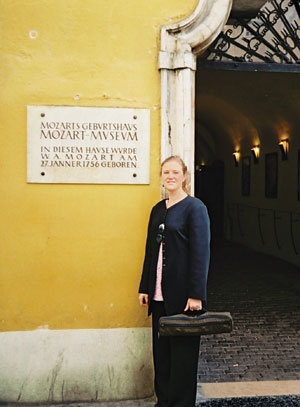
When Jackson reported to the new school for her 8th-grade year, she auditioned for the band and won first chair. “I loved it. I thought, ‘This is what it is all about.’” She began taking private lessons when she got to high school, where she also sang in the school choir and had the lead in the numerous school musicals. “Singing was great ear training. I have a fairly good control of pitch, and I think I owe a lot of that to singing and being able to hear and adjust the intonation. In fact, when I went to university I had to decide whether to enter as a flute major or a voice major. I decided upon the flute.
“We happened to live in Calgary when it was time for college, so I started my degree there at the University of Calgary. Then I realized that I wanted to be some place bigger. I told my teacher that I wanted to audition for McGill University, which is in Toronto, and she said, ‘Oh don’t bother. You will never get in to McGill University.’ What kind of a teacher says that to a student?”
Instead, Jackson auditioned for the University of British Columbia in Vancouver, which turned out to be the best decision of her life. “I took the train over the Rockies to Vancouver, auditioned, and was accepted. Camille Churchfield was the teacher there and also played principal flute in the Vancouver Symphony. She recently moved to Ottawa, where her husband is now Principal Bassoon of the National Arts Centre Orchestra. She was my teacher and a major turning point in my career. She was so encouraging and helpful and knew that I was really eager. She suggested that I should play a lot of recitals. In high school I had not entered any competitions; I just performed in band. She thought the experience gained through solo performances would be good for me, so she suggested that I do a recital every year.
“After the first recital I thought ‘If one recital a year is good, two a year should be even better.’ From then on I performed two recitals every year and actually extended my degree program, taking five years to earn it, so that I could have extra time.”
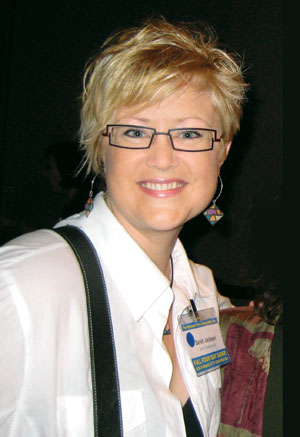 During Jackson’s final undergraduate year the second flutist in the Vancouver Symphony became very ill, and Jackson was hired to sub for the ailing player for the rest of the year. After graduation Jackson stayed in Vancouver and continued as a substitute, sitting next to her teacher. “It was just great. She is a phenomenal colleague, and we have become extremely good friends. It is really lovely.
During Jackson’s final undergraduate year the second flutist in the Vancouver Symphony became very ill, and Jackson was hired to sub for the ailing player for the rest of the year. After graduation Jackson stayed in Vancouver and continued as a substitute, sitting next to her teacher. “It was just great. She is a phenomenal colleague, and we have become extremely good friends. It is really lovely.
“After that year the orchestra held auditions for the second flute position. I was so proud of myself. I worked my tail off for that audition, and it was the best I had ever played in my life. I made the finals but I did not win the job. Surprisingly, I felt elated anyway because I knew I had played my absolute best. I could have cried myself to sleep that night, I was so happy. To this day, that audition and the one for Los Angeles are the highlights of my auditioning career.”
Without a job in Vancouver, Jackson decided to do masters work at McGill University, where she studied with Timothy Hutchins. At the end of her second year there the second flute position in Vancouver opened up again. It was advertised as a one-year position, because the person who had won it when Jackson lost had asked for a year’s leave of absence. She took the audition and won it.
“In hindsight, the orchestra probably should have advertised for a one-year placement with the possibility of it becoming a permanent position, as orchestras often do, but they didn’t handle it that way. So at the end of that year, they had to hold a new second flute audition, because I had only been hired for a one-year position.
“I wasn’t angry about having to audition again because I understood the situation. I must admit that I contemplated saying, ‘You know I already won this job a year ago, do I really have to audition again?’ But I also was aware that I was sitting next to my former teacher, and that weighed heavily on me. I decided not to ask for any favors. My thought was, ‘If I can win the audition the first time, surely I can win it again.’ That’s not always the case, but it was how I chose to think about it.”
Jackson spent 10 years in the Vancouver Symphony but not all of them as second flute. Several years into her tenure there the principal flute Camille Churchfield was struck with cancer. and took a leave of absence. Because the Vancouver Symphony carries three-member wind sections (first, second, and third/piccolo/assistant principal), the third flute moved over to principal flute, Jackson moved over to acting piccolo and assistant principal, and the orchestra hired yet another second flute. At that point Jackson had rarely played piccolo.
“I did very little piccolo during my undergraduate degree. I started working on piccolo at McGill, but I didn’t have specific lessons in it. We rotated within the flute section at McGill, and I wanted to know how to play piccolo when my rotation time came. It was not until I won the second flute position in Vancouver that I actually had to play some piccolo.”
Indeed, she taught herself to play piccolo and used a specific, analytical process that she uses today with her students. “I really think about how to produce a sound. I am very specific when I teach flute and piccolo so that students know what the important things are to think about and learn how to really take them apart. I teach to make myself obsolete and my students self-sufficient. I want to give them all the tools so they can figure things out on their own. I don’t give as many answers in lessons as I ask questions of my students.
“So while I really taught myself the piccolo, I dissected it. I didn’t just play at the instrument. I had separate piccolo practice times from my flute playing. I really liked the piccolo and was ready for the challenge when I moved into acting piccolo position. As third flute, piccolo, and assistant principal, I got a little bit of everything – some piccolo playing and some principal playing. While all of this was going on I continued to take all flute auditions as they arose and I made it in to the finals most of the time. I really thought I was destined to be a flute player.”
Practicing the Switch
When asked about practice and warm up on both instruments, Jackson describes what she calls the Switch.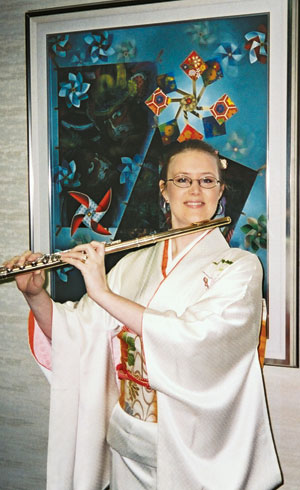
“During the second five years in Vancouver I always warmed up on flute and then moved on to piccolo. Gradually I got to the point where I could start the day with piccolo. Now the instrument I choose to warm up on first depends upon what I am playing that day.
“I really don’t have the problem of losing my flute low register after lots of piccolo playing, although I know some players do. If you play piccolo properly and are intelligent about the switch, you won’t experience that difficulty. When you make the switch from one instrument to the other, you need to flip a switch in your brain that says ‘I am now playing a different instrument.’ The transition between the two instruments is hard for people because they ease into it. They continue to play the first instrument in their head while trying to begin the second.”
“I worked on switching instruments by putting the flute and piccolo parts on a music stand and playing the piece in the order of the switches. If I didn’t like what I was hearing, I would take the second instrument, perhaps the piccolo, play that part and then switch back to the last couple measures of the flute part, then switch back to piccolo again. I did this over and over, until the switch worked.
“The questions is ‘What do you want the second instrument to sound like?’ Practice that, explore it, and then go back to the last little bit of the first instrument’s music. Play that, and then switch again and recreate the feel of the second instrument. Learn to make the switch quickly. There is not time to ease into it. Now I have absolutely no problem, except when I haven’t played one of the instruments for a long time. Then the embouchure muscles may be out of shape, but that is different from the mental adjustment. I make every change that is necessary for a switch, including air usage, sound production, shape of throat, where the tongue sits in the mouth, the shape of the lips, etc..
“It is human nature to suddenly tense up when going to a smaller instrument. We automatically tighten every single muscle that we think we will use to play piccolo. What we have to learn is how to use only the specific muscles that are necessary. You do use a slightly firmer muscle on piccolo, but it is not tight; you are simply using smaller muscles that are closer to the embouchure hole.”
Lip Plate Placement
“I also think that it is important to place the piccolo slightly higher on the lip, although I also play with my flute higher on the lip than most flutists. It opens up the sound. You can produce a much bigger sound when the instrument is up a bit higher, but it is harder to control pitch and dynamics. Air is akin to gas in a car. You want to go faster or play louder, give more gas, give more air. The danger in giving more air is that, as the air speed increases, notes tend to split, get sharp, and thin out. That is not an issue of using more air, but of being able to open up the embouchure, and part of that is bringing the tongue down in the mouth and widening the throat.
“Flutists talk about opening the throat, but the idea of widening the throat is also valuable. I like to say AH because that syllable drops the jaw without affecting the embouchure. The concept of a yawn is absolutely correct, but I find that when people think about a yawn, they actually start to yawn, which isn’t what we are going for.
Air Quantity
“A good breath is like a silver tray carrying your sound all the way to the back of the hall. We need to take just as large a breath on the piccolo as we do on the flute, even if we don’t need the air. Because the instrument is so much smaller and has a reverse conical bore, it has very little resonance in the instrument itself, much less than the flute. The wall is actually denser in a wooden instrument, so a wooden piccolo lacks even more resonance. We should create the resonance in our bodies – in our mouth, throat, and chest. Even if I have only three notes to play in an orchestral passage, or just one staccato note, I take the biggest breath that I can to make the space and create a resonant sound. My body becomes the vibrating chamber, similar to the body of a cello.
Audition for Los Angeles
The rest of the flute community was about to think of Jackson first as a piccolo player. One of those many auditions was for the Los Angeles Philharmonic. “Similar to the Vancouver audition, I felt like I played my absolute best in Los Angeles. Both auditions felt like perfect auditions to me. I played the musical passages the way I wanted to with the sound I wanted to use in Los Angeles; I was focused. The flute and piccolo switches were solid, and I felt that I showed myself the best I possibly could. That does not mean that I actually played a flawless audition!
I know I must have chipped a note slightly or played something a bit out of tune Playing perfectly to me, whether at an audition or a performance, is not about never making a mistake. It is about conveying good intonation, sound, various tone colors, good technique, and unwavering commitment to your musical ideas.
“There is a funny story about that audition. Just before the semi-final round I was sitting in a practice room, and accidentally dropped my piccolo. Never in my life had that happened before. I was staring in disbelief at my piccolo on the floor when a knock came at the door; it was my turn to play. I played a few notes, then off we went. There was no time to worry about it. Ultimately, the piccolo was fine, but it was not the way I wanted to start an audition round!”
Playing the Space
A new orchestra, new job, and new performance hall can require some adjustments. Jackson made her share. “My first year with the Los Angeles Philharmonic was also the inauguration of the Walt Disney Concert Hall. What a hall. In some ways the fact that no one knew exactly how to play in this new hall took a bit of the edge off my beginnings there. Then again, there was a whole lot of Pomping and Circumstancing going on. The L.A. Phil is definitely bigger than the Vancouver Symphony, so playing there took some getting used to. I eventually switched piccolos.
“In Vancouver I had played a grenadilla piccolo with a cocus headjoint. I find that cocus provides a slightly sweeter sound than grenadilla, but it is also a slightly smaller sound. In L.A. I was pushing the cocus headjoint further in forte passages than was best for the instrument. I bought an all-grenadilla piccolo, and that is what I play on now. I also have an all-cocus piccolo that I use in smaller groups like chamber music. I am about to get a grenadilla piccolo with a new C#-trill key mechanism.”
Teaching
The greater Los Angeles area has many colleges and universities, but when Jackson arrived all the flute teaching positions were filled. Over time she has built up a studio at home. She now has a student in a masters program in piccolo performance at Azusa Pacific University. “I love teaching, when I can find the time. I also go out and teach masterclasses. In October I went to Caracas, Venezuela to teach masterclasses and private lessons. In late February I will be in Salisbury, Maryland to play a flute and a piccolo concerto with the Salisbury Symphony Orchestra and teach a masterclass at the Salisbury University. I will play and teach at the 2011 International Piccolo Symposium this in Omaha, Nebraska.”
.jpg)
“Students are often afraid to experiment and try something that may not work well. I was never afraid for it to sound bad. You have to find out what doesn’t work, just as much as you need to figure out what does. Try to make it sound worse and think about everything you are doing. This will show you the appropriate direction in which to go to improve it. I warm up with tone exercises every day and ask myself each time, ‘Can I be more open and relaxed. I am probably more open and relaxed now than I was a year ago. If you are not moving forward, then you are moving back.
“I have analyzed very carefully how to play the instrument in all its tiny details, and I can tell you that I have learned more about piccolo playing by teaching piccolo players. A student will come for a piccolo lesson, and when they leave my husband teases me by asking, ‘Did you learn much?’ By teaching I see a different way of doing something because what works for me doesn’t always work for the other person. When you are dealing with such a small aperture, millimeters of differences, the physical shape of someone’s embouchure makes a big difference. Maybe they cannot do it the same way you do. Because I have experimented a great deal, I either have an answer or a suggestion for students, or I encourage them to experiment. I show them that it is all right to drop a note to figure out that it doesn’t work. There is no growth without failure. I think I have grown tremendously as a player because of my students.”
Chamber Music
Chamber music opportunities abound in Los Angeles, and Jackson participates in them frequently. “Obviously, more is on flute than on piccolo, but that’s fine because it allows me to play some really meaty flute music; 4th flute in the orchestra just doesn’t satisfy somehow.
“The Philharmonic has two chamber music series that I play in regularly. One is a straight-forward chamber music series where we put groups together ourselves and submit those ideas for approval in the next year’s planning. The other is a contemporary music series made up mostly of small groups; most often a conductor is involved.
“I have a woodwind quintet that I play in regularly; just last week we performed for the Youth Orchestra of Los Angeles (pictured above). It was so much fun, and I always find playing for kids so satisfying.”
Jackson is married to conductor Clyde Mitchell, who was Resident and Associate Conductor of the Vancouver Symphony, where they met. He started Sinfonia, a Vancouver chamber orchestra, and now flies between Los Angeles and Vancouver to maintain his ties with the organization. He does a fair amount of conducting abroad, and Jackson joins her husband on these trips when she can get away from the orchestra. The couple’s other passion is cooking and they enjoy exploring interesting flavors on their many trips outside of the U.S. Sarah Jackson is also serving on the board of the National Flute Association through 2013.
